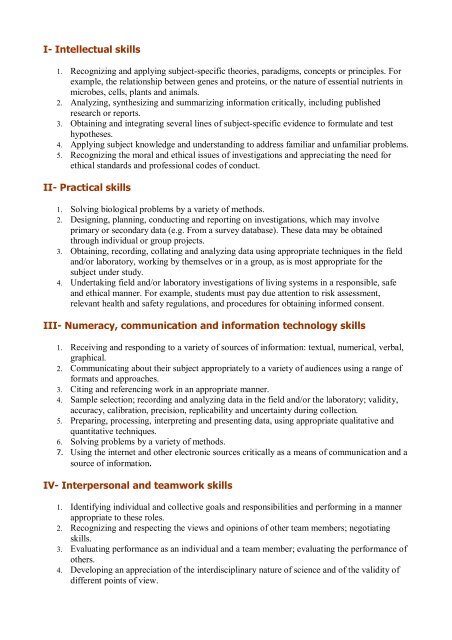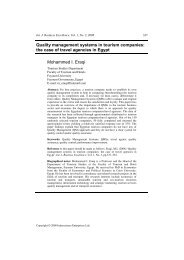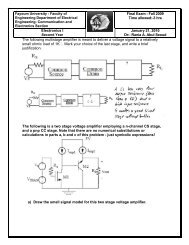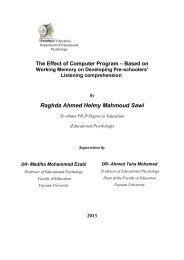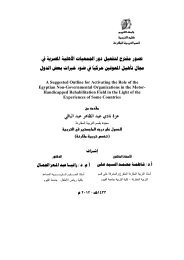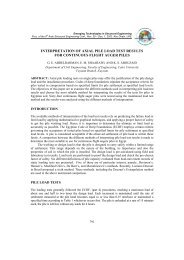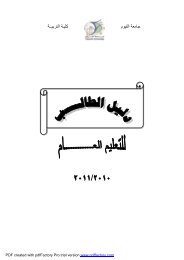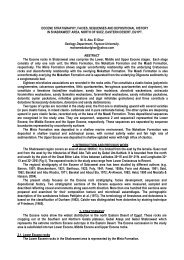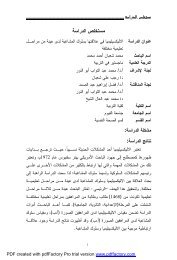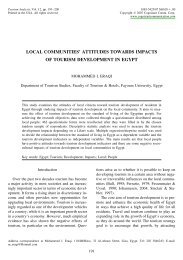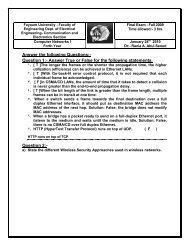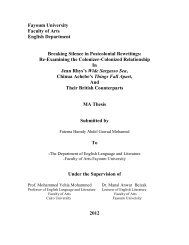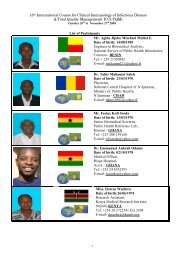National Academic Reference Standards for honors degree
National Academic Reference Standards for honors degree
National Academic Reference Standards for honors degree
Create successful ePaper yourself
Turn your PDF publications into a flip-book with our unique Google optimized e-Paper software.
I- Intellectual skills<br />
1. Recognizing and applying subject-specific theories, paradigms, concepts or principles. For<br />
example, the relationship between genes and proteins, or the nature of essential nutrients in<br />
microbes, cells, plants and animals.<br />
2. Analyzing, synthesizing and summarizing in<strong>for</strong>mation critically, including published<br />
research or reports.<br />
3. Obtaining and integrating several lines of subject-specific evidence to <strong>for</strong>mulate and test<br />
hypotheses.<br />
4. Applying subject knowledge and understanding to address familiar and unfamiliar problems.<br />
5. Recognizing the moral and ethical issues of investigations and appreciating the need <strong>for</strong><br />
ethical standards and professional codes of conduct.<br />
II- Practical skills<br />
1. Solving biological problems by a variety of methods.<br />
2. Designing, planning, conducting and reporting on investigations, which may involve<br />
primary or secondary data (e.g. From a survey database). These data may be obtained<br />
through individual or group projects.<br />
3. Obtaining, recording, collating and analyzing data using appropriate techniques in the field<br />
and/or laboratory, working by themselves or in a group, as is most appropriate <strong>for</strong> the<br />
subject under study.<br />
4. Undertaking field and/or laboratory investigations of living systems in a responsible, safe<br />
and ethical manner. For example, students must pay due attention to risk assessment,<br />
relevant health and safety regulations, and procedures <strong>for</strong> obtaining in<strong>for</strong>med consent.<br />
III- Numeracy, communication and in<strong>for</strong>mation technology skills<br />
1. Receiving and responding to a variety of sources of in<strong>for</strong>mation: textual, numerical, verbal,<br />
graphical.<br />
2. Communicating about their subject appropriately to a variety of audiences using a range of<br />
<strong>for</strong>mats and approaches.<br />
3. Citing and referencing work in an appropriate manner.<br />
4. Sample selection; recording and analyzing data in the field and/or the laboratory; validity,<br />
accuracy, calibration, precision, replicability and uncertainty during collection.<br />
5. Preparing, processing, interpreting and presenting data, using appropriate qualitative and<br />
quantitative techniques.<br />
6. Solving problems by a variety of methods.<br />
7. Using the internet and other electronic sources critically as a means of communication and a<br />
source of in<strong>for</strong>mation.<br />
IV- Interpersonal and teamwork skills<br />
1. Identifying individual and collective goals and responsibilities and per<strong>for</strong>ming in a manner<br />
appropriate to these roles.<br />
2. Recognizing and respecting the views and opinions of other team members; negotiating<br />
skills.<br />
3. Evaluating per<strong>for</strong>mance as an individual and a team member; evaluating the per<strong>for</strong>mance of<br />
others.<br />
4. Developing an appreciation of the interdisciplinary nature of science and of the validity of<br />
different points of view.<br />
١٧


